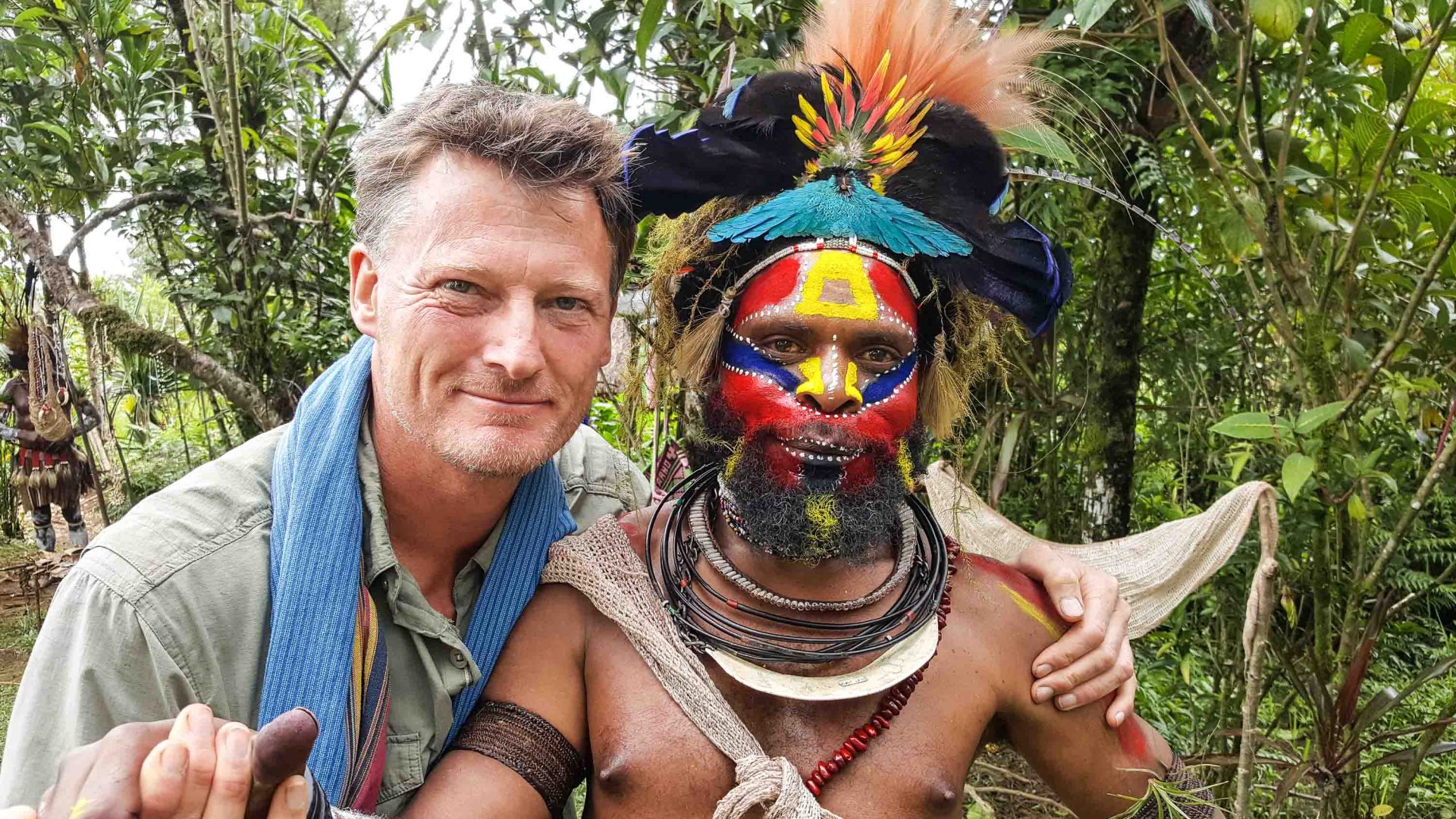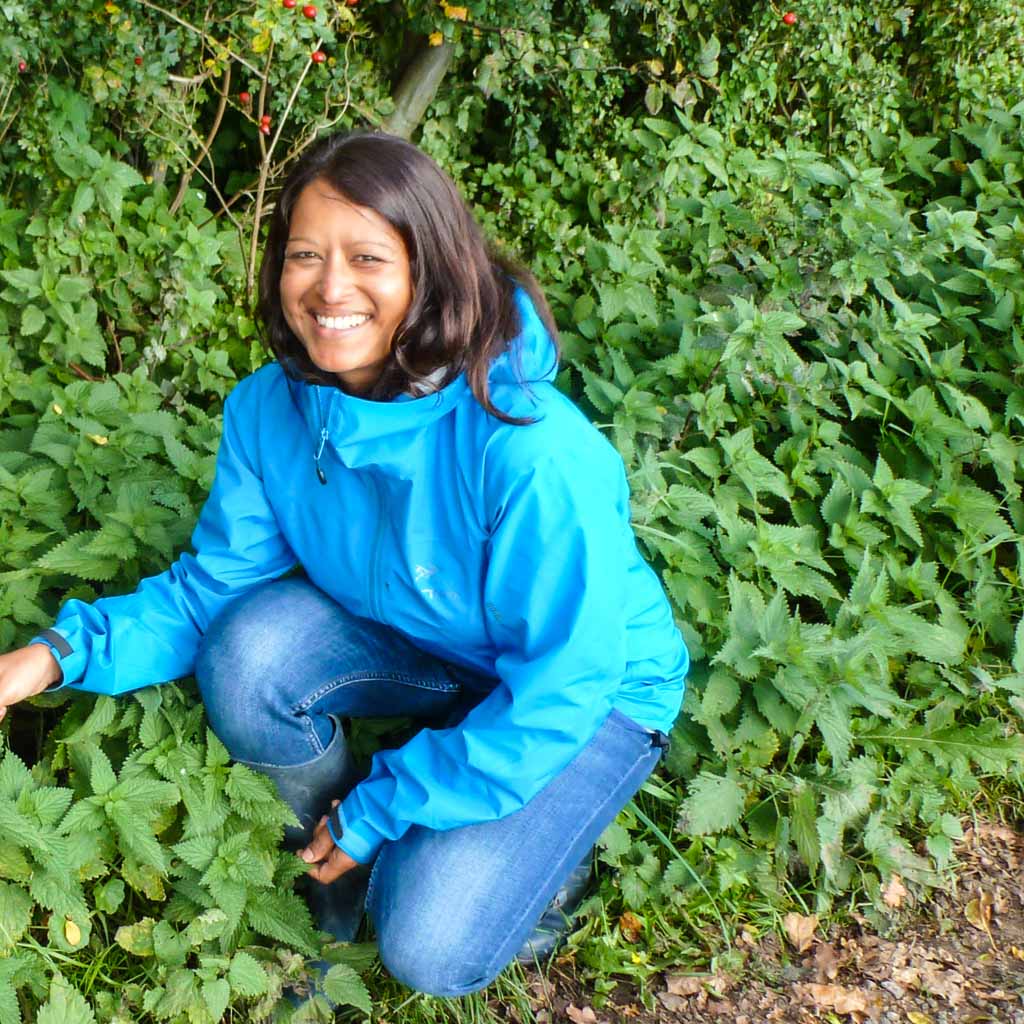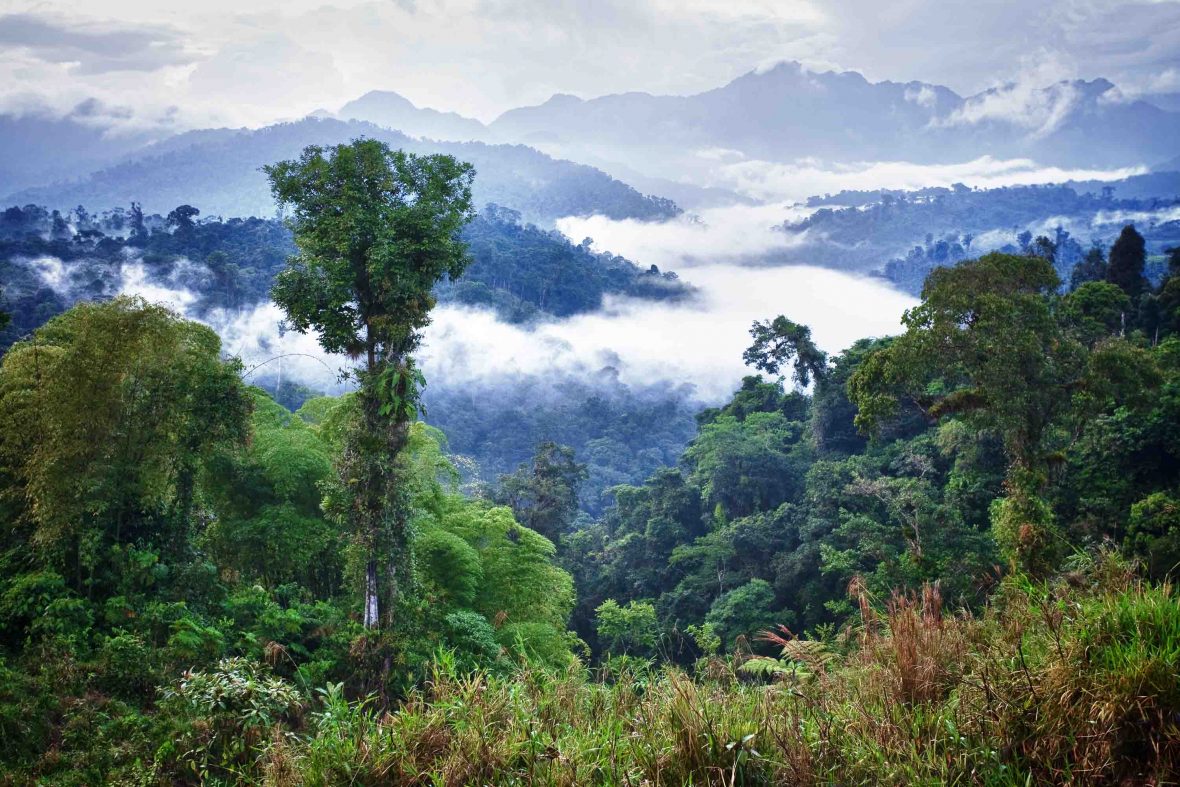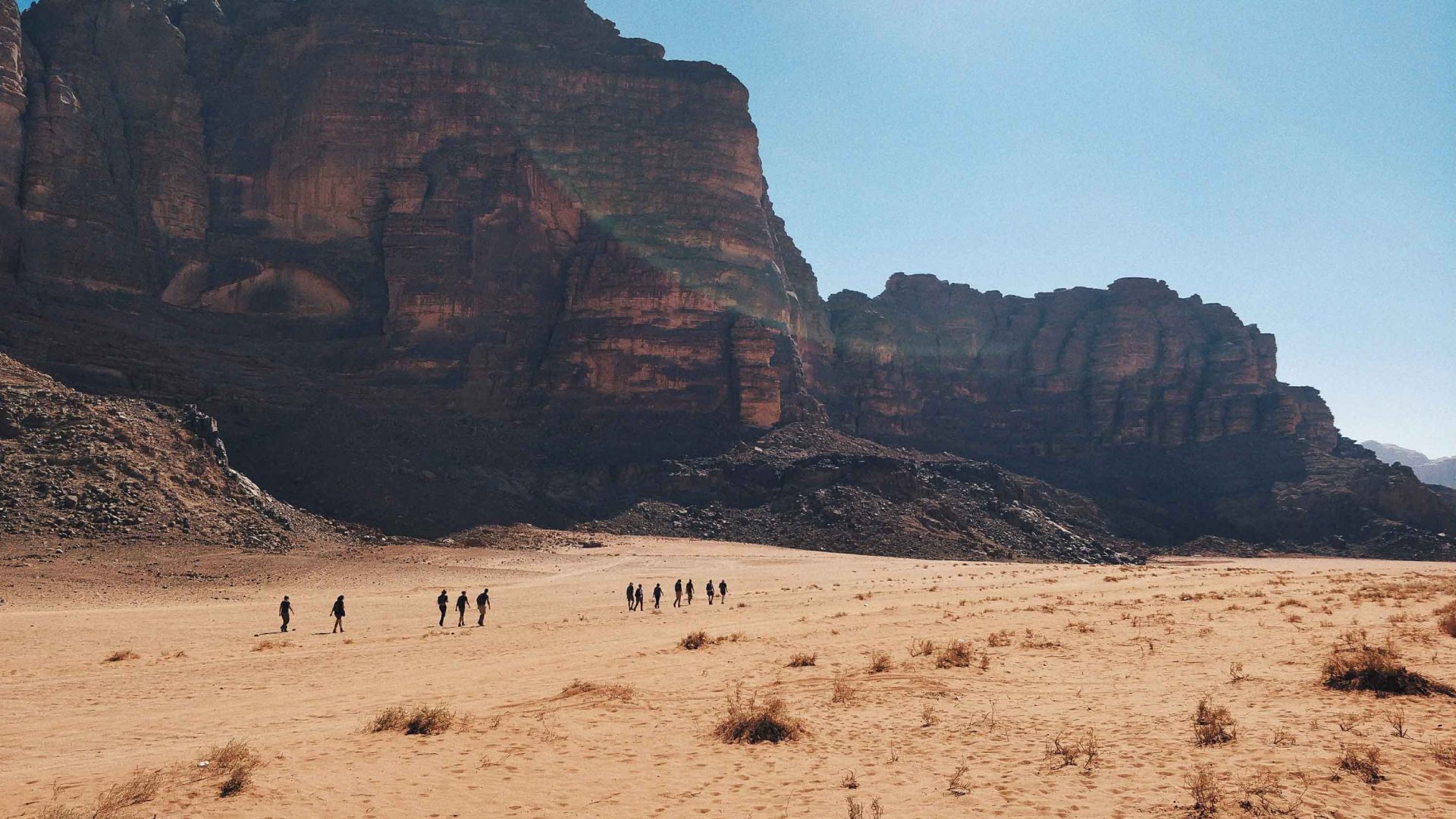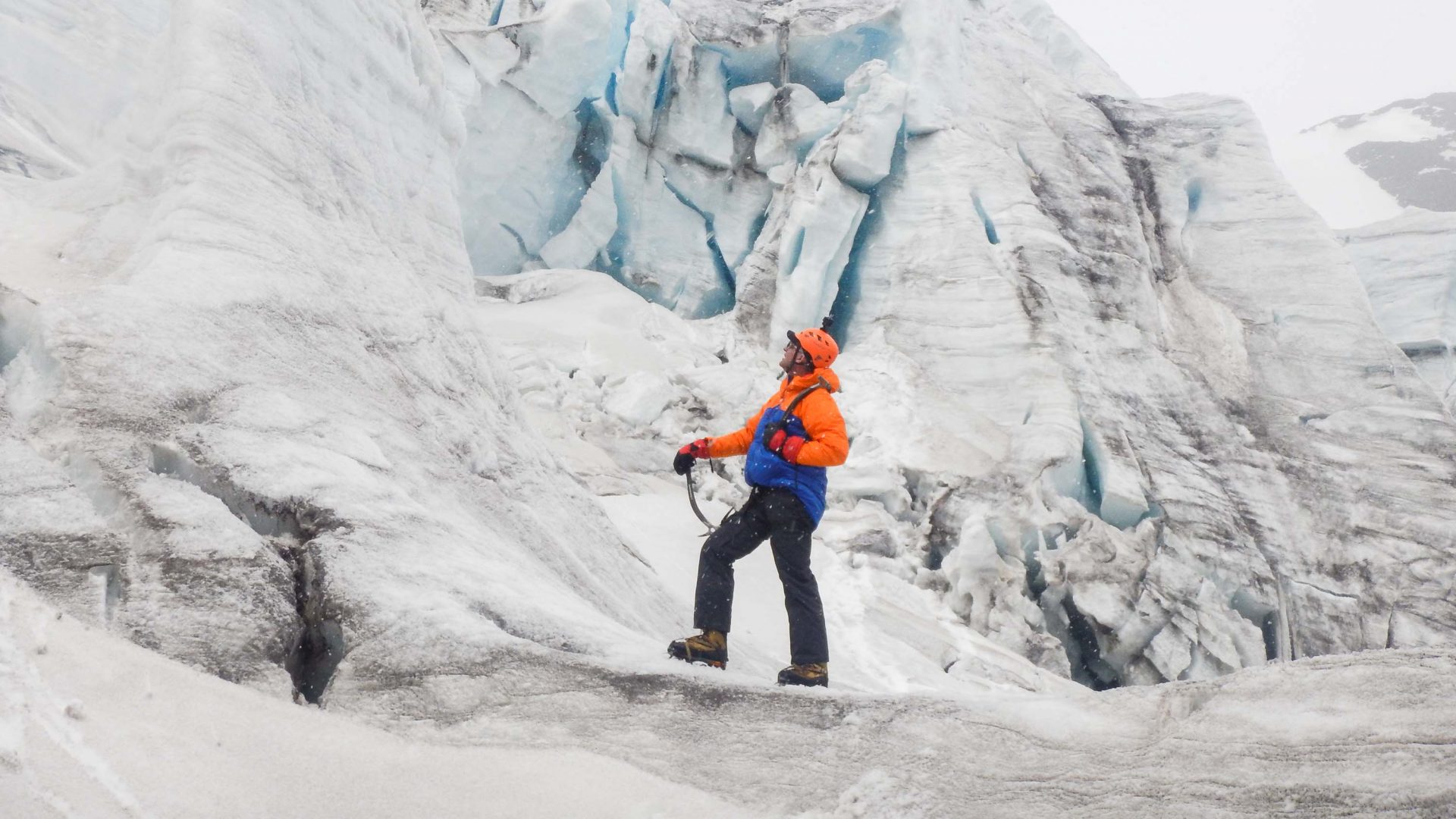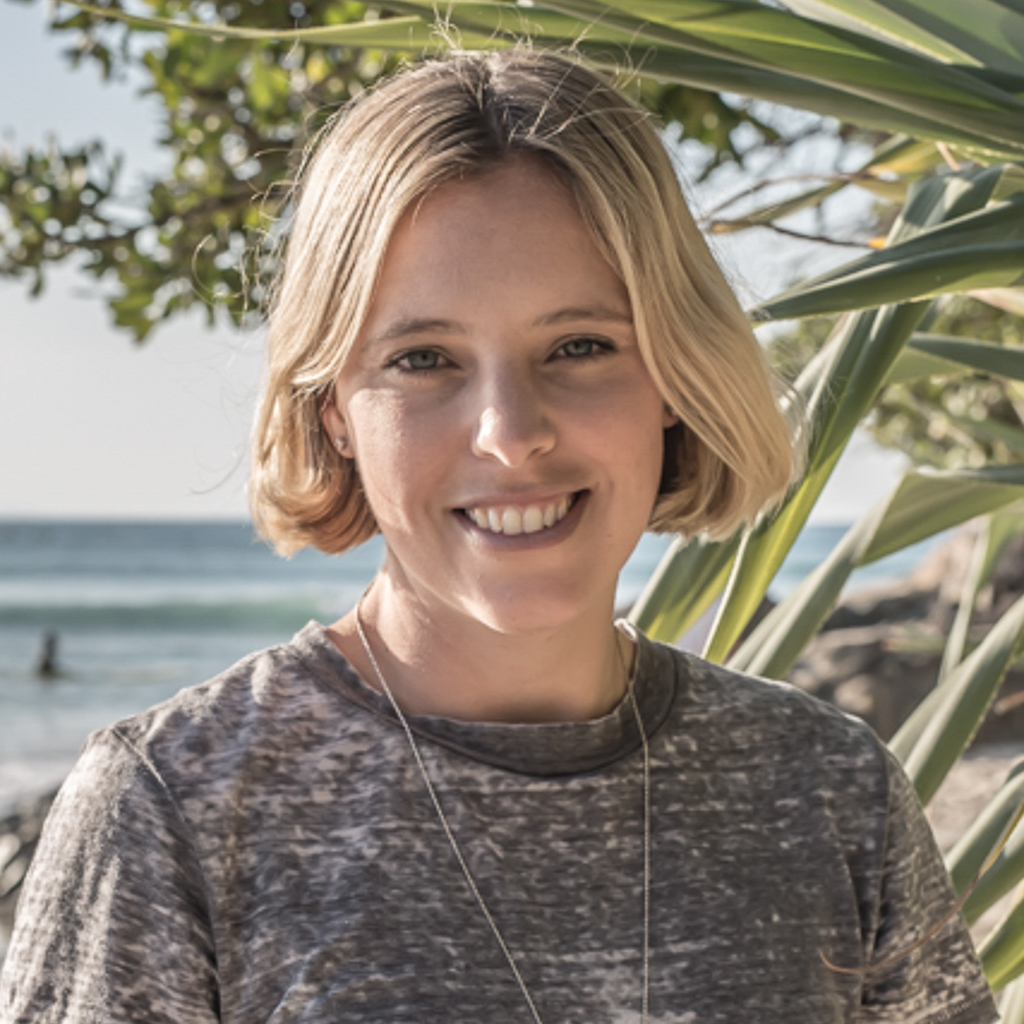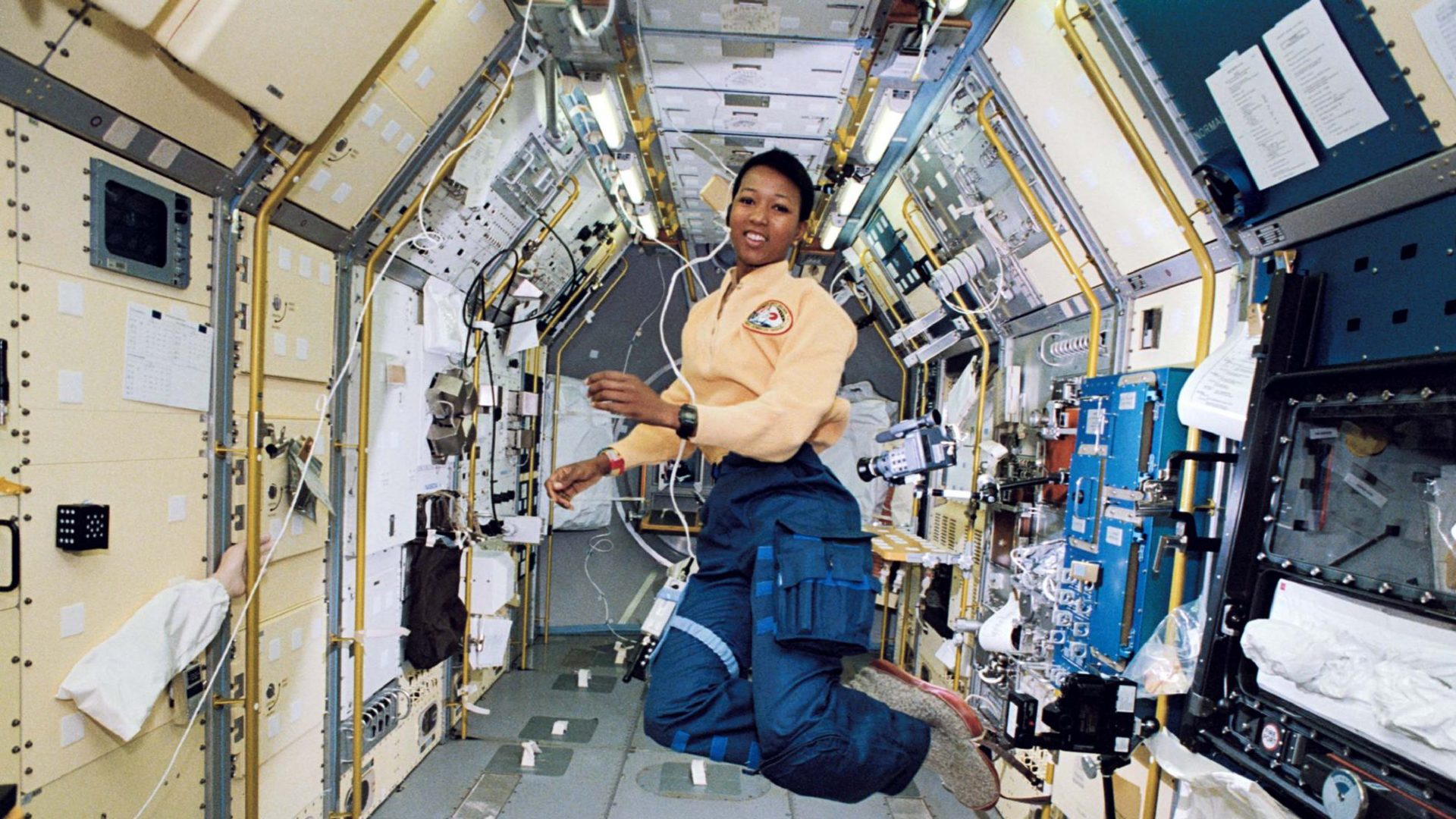He’s one of the last of the ‘classic explorers’ of our time, regularly going off-grid and into the unknown—adventurer Benedict Allen talks to Jini Reddy about the importance of disconnecting, engaging, and documenting the world we live in.
“It might sound counter-intuitive, but we are entering a Golden Age of exploration,” says Benedict Allen. “Never has the world been more accessible, never has it been more democratic. And the world has more need for people to investigate it than ever before…”
Eager to inspire a new generation on a UK speaking tour, Benedict delivers these words to me in his West London eyrie not long after a journey—his third—into the Peruvian Amazon and before his current Ultimate Explorer tour.
It was 25 years ago when he first met the Matses, or ‘Jaguar People’ and lived with a family for three months. They’d warmly embraced him, taught him to read the forest and then he’d walked on alone, making a gruelling 5,633-kilometer crossing of the Amazon basin. He’d been eager to pay his friends a return visit—hence his most recent expedition.
“They were kind and wonderful to me when I was still relatively naïve and unskilled,” he says. “I felt I owed it to them to say thanks. I wanted to see how the daughter Lucy was and her dad, Pablito.”
At the tender age of 23, Benedict made a 966-kilometer crossing of the remote northeast Amazon. On that trip, he was forced to walk out of the forest, and, while malaria-stricken and starving, took the decision to eat his dog in order to survive.
He’s ridden camels a thousand miles up Namibia’s Skeleton Coast, crossed Mongolia’s Gobi Desert, sledged across the Bering Strait with a team of husky dogs, and in Papua New Guinea, he underwent an initiation ceremony to make him “as strong as a crocodile”. He’s journeyed alone, was the first to travel with a hand-held camera, made documentaries and wrote books.
After a hiatus of sorts in which he presented adventure TV shows, got married and had three children, he returned last year to Papua New Guinea to visit friends from the remote Yaifo people who he’d befriended as a young man.
His trip suddenly became headline news when he missed his flight out. Fighting had erupted between two communities which had made it impossible for him to walk out of the forest, and he’d become sick with malaria and dengue fever. He was gee-ing up for a final attempt to get to the outside world, when he was unexpectedly rescued by helicopter. The explorer was rebuked in the press for his risk-taking—he’d traveled without a satellite phone.
RELATED: The app that can find places that don’t have an address
“Not being contactable, well, maybe it is to do with friendship, and wanting to look the locals in the eye, and say, ‘I trust you. I’m not taking any gadgets that would save me that wouldn’t save you, I’m trusting you with my life and you’re trusting me with yours,’” he says.
He also believes that exploration—true exploration—is about being honest with himself, and about testing the courage of his convictions. “Of course, it becomes a moral question if you have children and whether it is fair on them, but that’s a different tussle,” he says.
Still, the joys of exploration did and do prevail. “The magic for me lies in the exhilaration of propeling yourself into the unknown, the pure joy and stimulation of having to rely on your own wits. And you feel like you’re living more intensely.”
Of course, not everyone has the opportunity to spend sustained time in remote communities and the world is changing; some might say shrinking. As one of the last of the ‘classic’ explorers with an enviable archive of experiences of a less joined-up world to draw upon, what does he say to those eager to pick up the baton in the 21st century?
“I think we have to re-think the word and say that all humans, regardless of our background, are explorers. We’re all interested in the world, we’re all documenting the unfamiliar, all the time.”
“When we explore we gain an understanding of the world we depend on—we break down that idea of nature being ‘out there’ and we experience a greater empathy towards cultures that have been hitherto misunderstood. And you don’t need to go to the Amazon to do it.”
His approach has dovetailed with the increasing desire of many in technology-rich societies to disconnect. “These days, it has become incredibly important. We’re all repeating the same knowledge because we’re so connected. I’m keen to extol the value of standing back. And children don’t take risks any more or they are not allowed to take risks,” he says.
“It’s not up to the specialists now, it’s up to everyone: We don’t need to stand back and admire someone, we need to get involved ourselves.”
—-
Benedict Allen is touring UK theatres with his latest talk, Ultimate Explorer.
